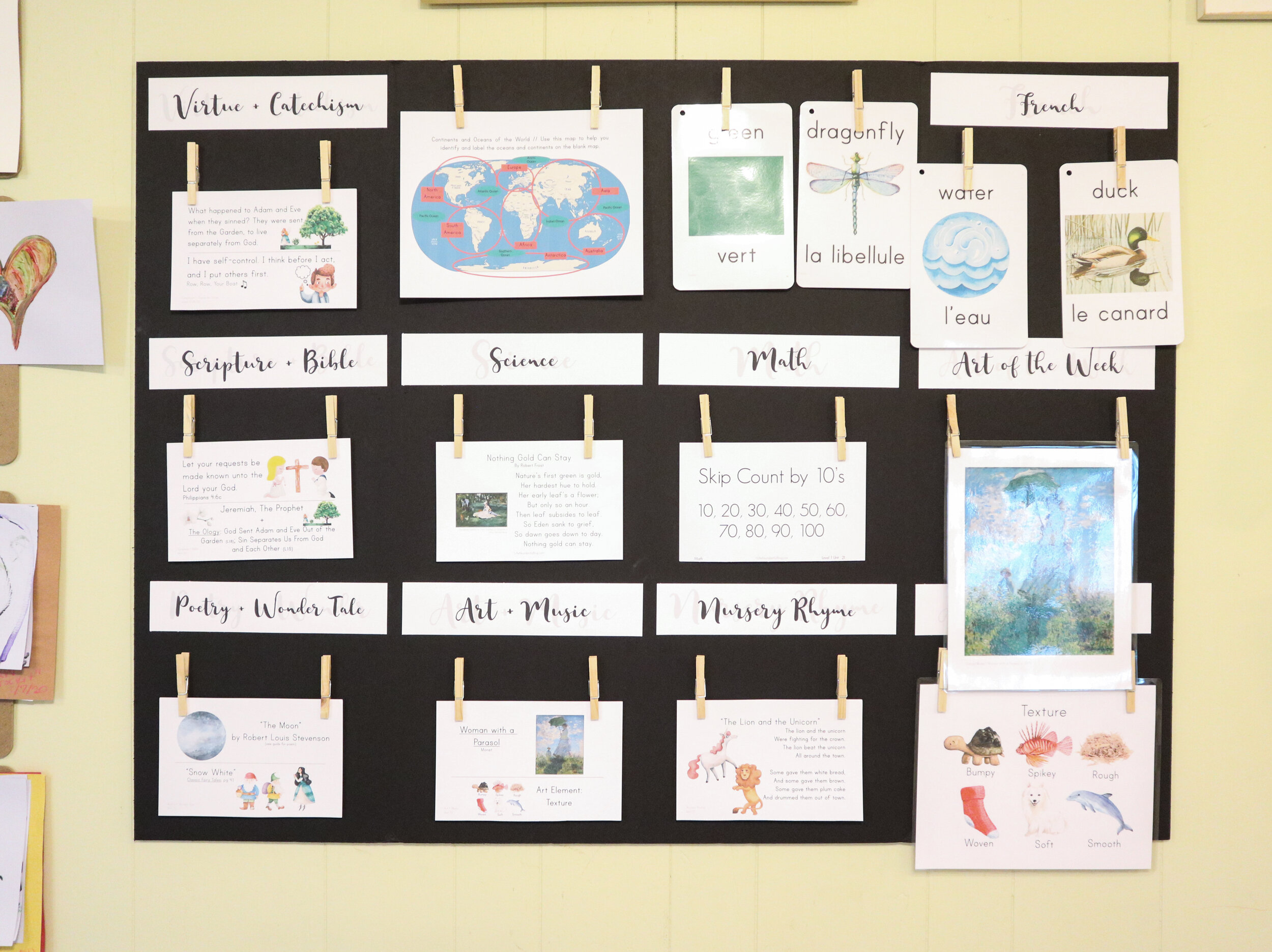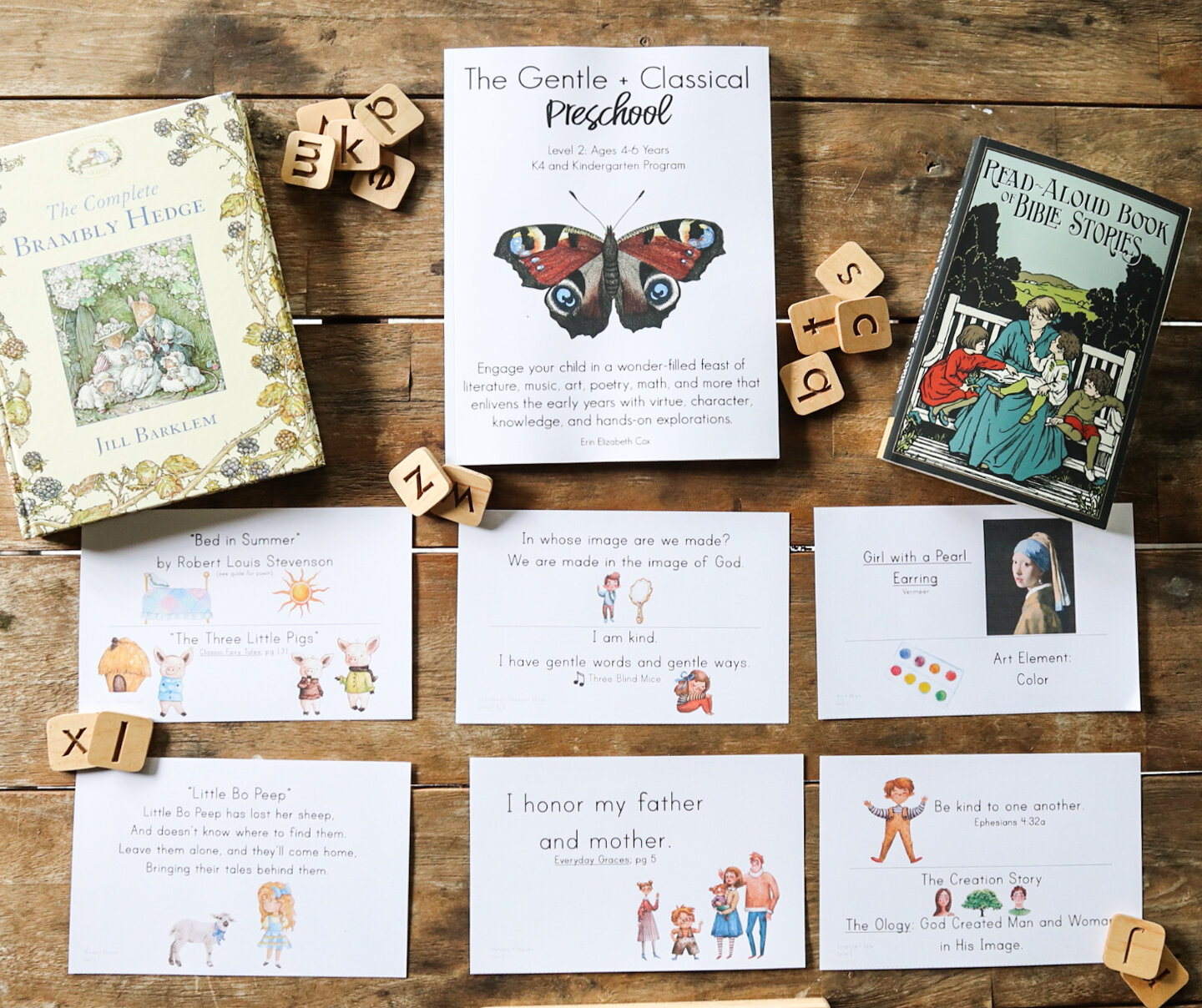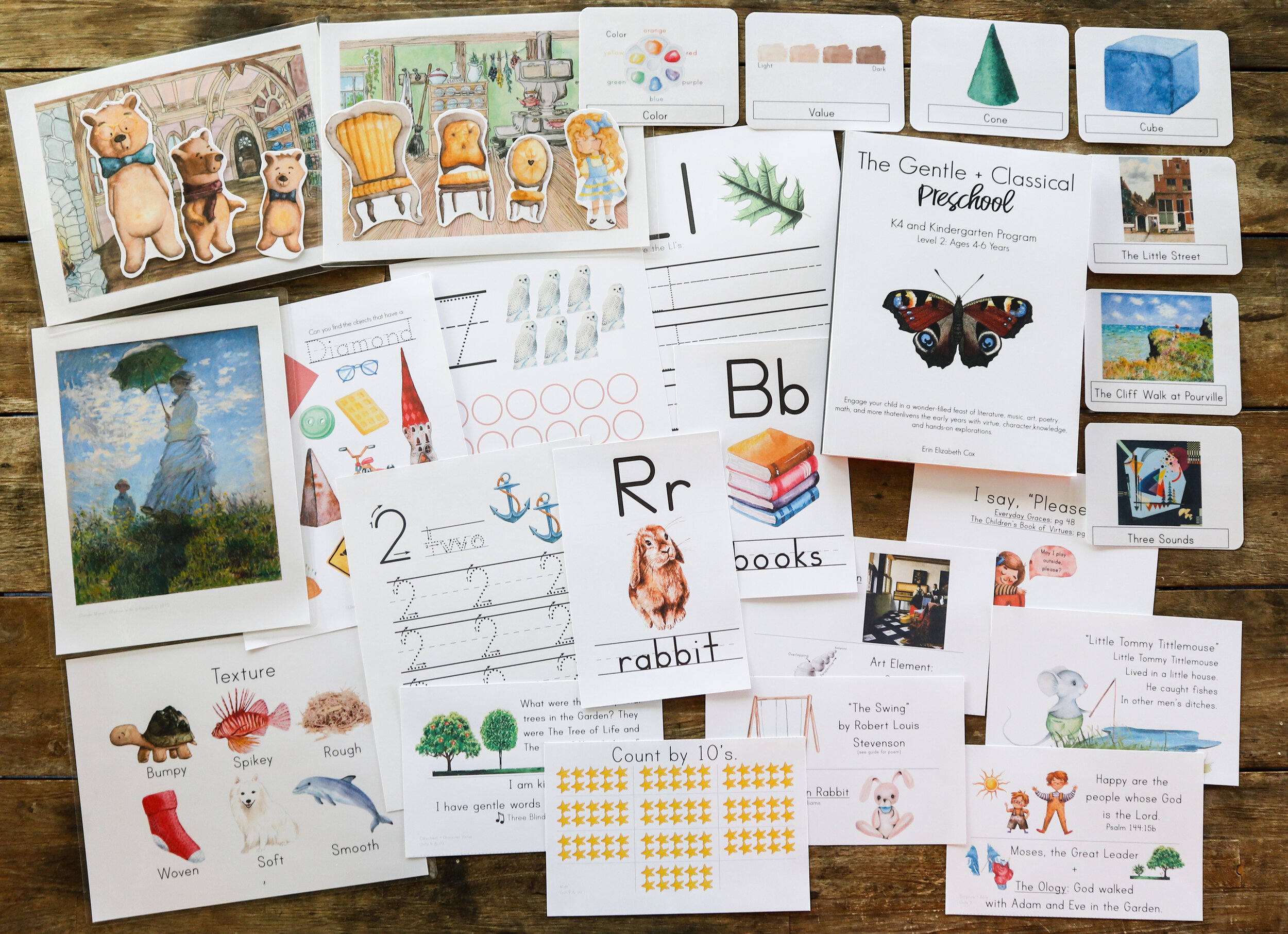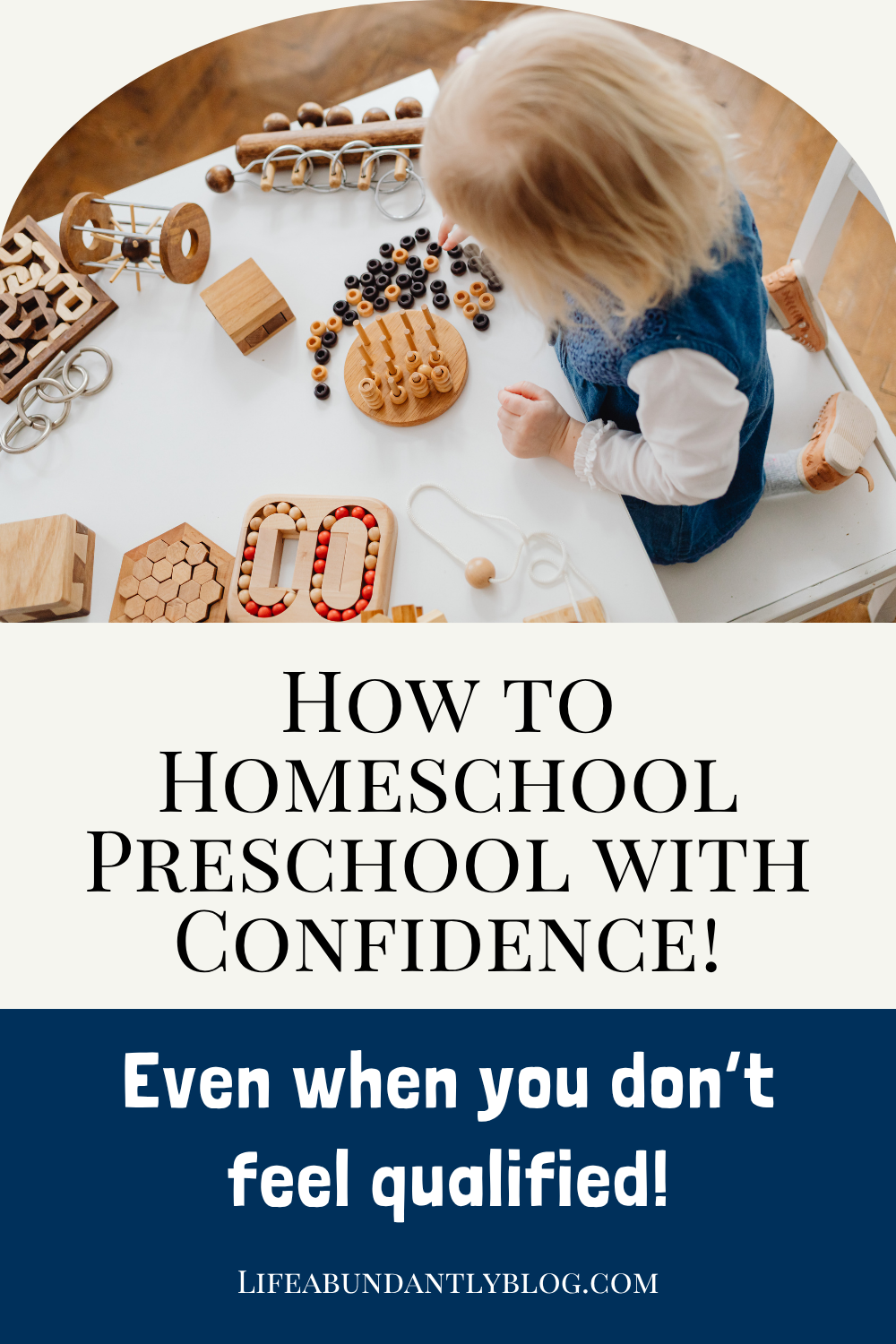Memorization: When to move on?
/My child is learning this memory work really quickly... Should I move faster, add to it, or go to a different level? This question lands in my lap quite often, so I want to explore things a little bit further with you. Always remember, this is my personal perspective, so trust your gut and your prayers, Mama!
I want to encourage you on the idea of "dwelling" a bit. I can't tell you how many times I personally read a short portion of scripture then over the days and weeks following, God brought that teaching to mind again and again. He fleshes it out, brings it to life, and pierces my heart through just a short verse.
Realizing how long this process of true understanding takes reminded me that in a checklist-centered world, even when seeking a gentle early education, we can tend toward a hurried mentality.
"Oh, she's got this down, let's keep going."
“What’s next? I’m kind of over this.”
“Let’s go ahead and push through this to get to the next thing.”
The even harder challenges come when well-meaning family or friends indicate in some way that our child is “behind.” The voice of the enemy sends a rally cry and pushes us to push them toward more, faster and harder.
But I want to encourage you to let the work do its work. (It is called memory WORK ;). Our memory statements are not about memorization, but instead about putting words and names to creation and the works of our Creator. This applies to all subjects, even those that don’t seem to have much to do with our Creator.
Through these statements, we gives names to emotions, virtues, orders, animals, and processes. We group, curate, observe, review, and magnify. But we aren't memorizing for the sake of memorizing.. As that's only the beginning.
We are memorizing so that while they have the new language to express these new ideas, these ideas can slowly weave new life into little hearts.
(*Pictured content is from The Gentle + Classical Preschool.)
So if my child can say "Who are our first parents? Adam and Eve" after two days... Should I move on?
The answer is not quite- because our true aim is not a factual, accurate recitation (even though those are indeed nice). Our true aim is exposure to and understanding of the virtue, wonder, and truth wrapped up in the knowledge that Adam and Eve are our first parents: Who are parents? What do parents do? What family resemblances do we inherit? How our they our first parents? What have we received from them?
These sweet, intimate conversations happen in little, incremental, seemingly innocuous moments, but we must make space for them. We must leave our little ones to ponder and wonder before moving on to the next thing. We must let these verses and nuggets of knowing do their work so that they aren't memorized and forgotten but becomes true Knowing.
We must help them know FROM THE BEGINNING, that we aren't "getting school done" but living a LIFE of education. That education is our privileged discipline and inherent in the atmosphere of our homes. We aren’t powering through memory work to get to the next thing, but resting in the process of pressing in, letting the Holy Spirit do his work in young (and old) hearts and minds.
Let's all remember (preaching to myself!) that this isn't a race. There are no awards for most catechism by age 5 or reading at the youngest age possible. There is only virtue and wisdom that will order their affections for a lifetime.
















